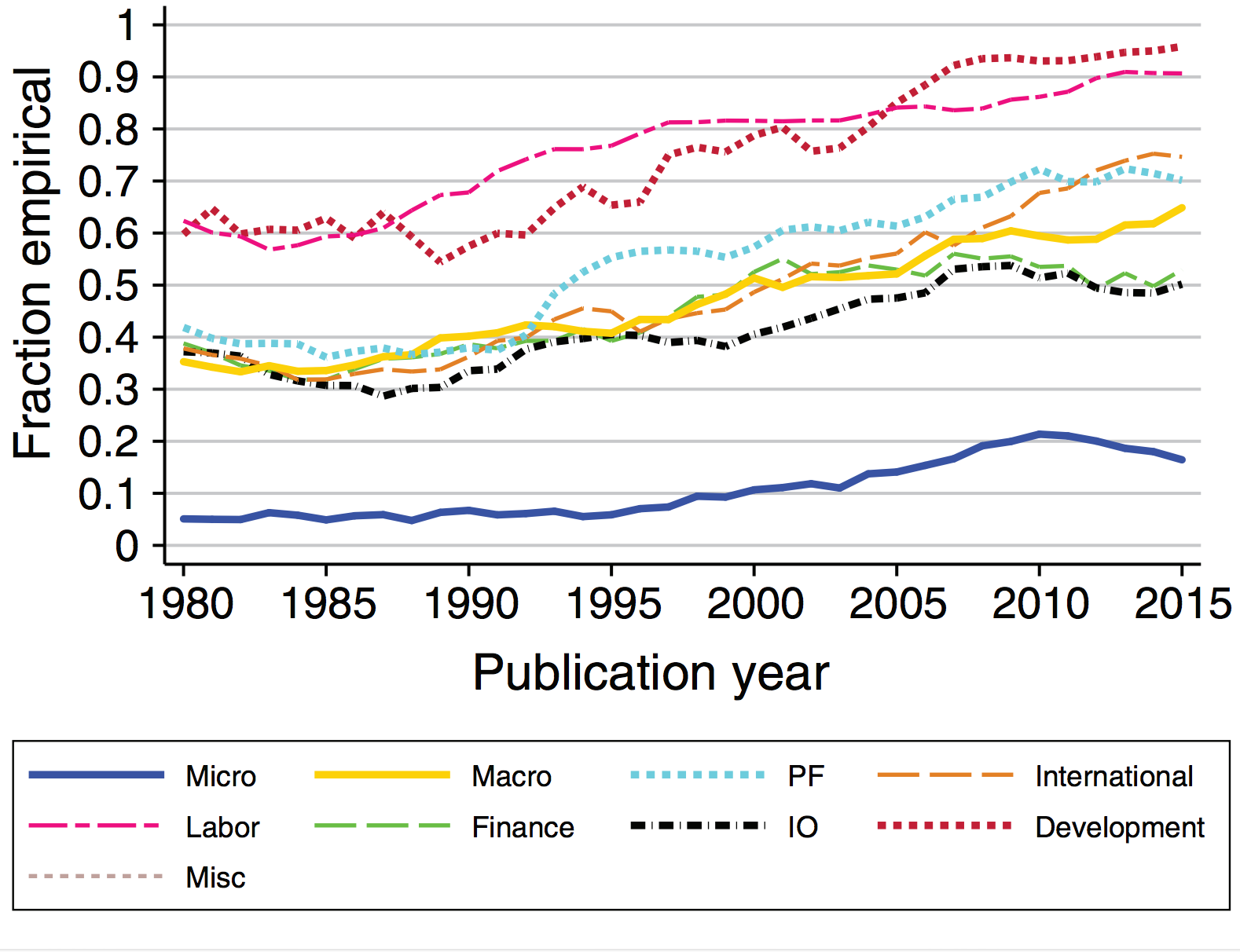Why economics does not believe in data/empirical evidence?
First, economics is a name of a scientific subject, as such it cannot have any beliefs. Economists can have beliefs because economists are people but economics is just name for a subject. A subject could be considered theoretical if most work published in the area is theoretical, but subject cannot believe in anything, that's like talking about believes a house or boat holds.
Second, vast majority of economists do believe in empirical evidence, and most publish research in economics is empirical.
Research by Angrist et al (2017) clearly shows that most economic research that is now published is empirical research (see figure below). Moreover, the number of Nobel Prizes awarded for some empirical work in economics increases significantly over time as a proportion of total prizes.
This clearly shows that:
- Economics is nowadays predominantly empirical subject as clearly shown by data.
- Majority of economists believe, work and approve empirical research for publication.
- Top elite economists (who go on winning Nobel Prizes) are focusing more and more time on empirical work.
As such the claim in the post is simply not factually true. Economists do believe in empirical research and economics is empirical subject.

There are influential ‘theories’ that are in plain contrast to experimental evidence, including the capital asset pricing model, the efficient market hypothesis, or the Markowitz portfolio theory. These concepts earned their inventors Nobel Prizes.
This in no way indicates that economists do not believe in empirical data.
For example, you claim that "There are influential ‘theories’ that are in plain contrast to experimental evidence, including the efficient market hypothesis".
First this claim is clearly false. Although, one can reject efficient market hypothesis using some clever econometrics, it is actually extremely difficult to do so and that is precisely because data actually look like they support the efficient market hypothesis. If you look at stock returns they appear to be completely random and one has to have a lot of data and sophisticated methods to find temporary non-random patterns (e.g. see Malkiel 2003).
Second, just because model can be falsified does not mean it is not useful. Newtonian physics was already falsified long time ago, yet still physics students have to learn it and many engineers apply it as an approximation instead of working with relativity.
Relativity is also incomplete theory, which cannot explain empirical observations on small scales, yet Albert Einstein won Nobel Prize for it. Nobel Prizes are awards for intellectual achievements not for arriving at final truth.
Some theories can be more correct and some less correct but no theory can ever be 100% correct. In science, whether in economics, physics, biology etc, we routinely provisionally accept and celebrate theories even if we know for a fact that they are not correct, if they are more correct than other theories, or if they have broader explanatory power than theories that are just tailored to some very specific and narrow case but can't be applied more broadly.
